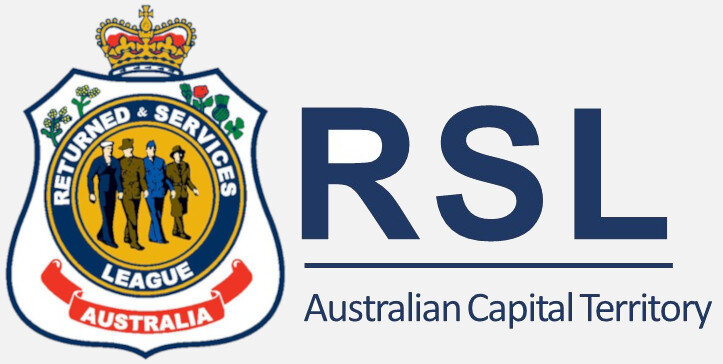Tips for Contacting Employers Directly
How to reach out to employers you’d like to work for, regardless of whether they’ve advertised a role.
Job hunting can be a challenging process, but with the right approach and preparation, it can become an opportunity to showcase your skills and find a role that aligns with your experience and values. As a veteran transitioning into a civilian role, this journey may come with its own set of challenges. Fortunately, the RSL Veterans' Employment Program is dedicated to supporting veterans and their families at every stage of their job-hunting journey.
One strategy that can yield success is contacting employers directly, rather than waiting for specific vacancies to be advertised. This proactive approach shows initiative and can differentiate you from other applicants. Here are our top tips to effectively contact potential employers.
Prepare in advance
Research potential employers: Before making contact, spend time researching companies you're interested in. Understand their operations, culture, and values. As a veteran, highlight what unique skills and attributes you can bring to the table.
Choosing the best contact method: Depending on the company size and industry, the preferred method of contact can vary. While emailing may be suitable for corporate roles, smaller businesses, especially in sectors like retail and hospitality, might appreciate a personal touch like walk-ins.
Tailored application materials: Always have copies of your resumé and cover letter ready. More importantly, ensure these documents are tailored to reflect the specific job or company you're approaching. For CV writing tips, check out this article on the difference between hard and soft skills, and why it’s especially important for veterans to understand.
Practice your pitch: Prepare and rehearse a brief introduction. This should communicate who you are, your experience, and what you're looking for.
2. Pick the right time to make contact
Avoid busy hours: Ensure you reach out at times when the business isn't swamped. For instance, avoid contacting cafés during their morning rush or restaurants during meal times.
Give your time generously: Approach potential employers when you're not pressed for time. Be ready for an impromptu chat or even an interview.
3. Find the right point of contact
Identify the right person: Aim to speak directly with the recruitment or hiring manager. If they're unavailable, get their details for future contact.
Always be courteous: Remember that every interaction counts. Being polite to every staff member you speak to can leave a lasting impression.
4. Make a solid first impression
Dress the part: Dress appropriately for the industry and the role you're targeting. That means a suit in the corporate world, and casual but professional with an edge of self-expression in creative industries.
Positive and confident demeanour: Your attitude speaks volumes. A genuine smile, firm posture, and clear speech can go a long way in making a great impression.
Focus on building a connection: Whether or not there's a vacancy, your goal is to make a lasting, positive impression. Ideally, they’ll remember you if a suitable role comes up in the future.
5. Gauge their interest
Highlight your skills: Find a moment to emphasise what you can offer, showcasing any specific skills or experiences that would benefit their business.
Read their response: This will guide your next steps. Were they receptive or indifferent? This will help you decide whether a follow-up is worthwhile.
6. The art of the follow-up
Stay on their radar: Even if there aren’t immediate vacancies – and depending on how you’ve gauged their interest, per the previous point – touch base in a week or two. This can position you favourably for future opportunities.
Reminder of your value: If they haven't perused your resumé yet, gently remind them of how your skills align with their business needs.
Seek constructive feedback: Not every approach will be successful, and that's okay. Always ask for feedback if a company feels you're not a suitable fit. This can offer valuable insights for your future job-hunting endeavours.
7. Use your network
Leverage connections: If you know someone within the company or industry, ask them for insights or a possible introduction. Your military background has likely provided you with a broad network; make use of it.
Professional platforms: Utilise platforms like LinkedIn to establish connections. Engage in relevant groups or discussions to increase visibility.
8. Highlight transferable skills
Military to civilian: Many skills from your military career can be valuable in civilian roles. Leadership, discipline, teamwork, and adaptability are just a few. Ensure you clearly translate these into terms that resonate with potential employers.
9. Show passion and enthusiasm
Beyond skills: Employers often look for candidates who are genuinely passionate about the role or the industry. Your enthusiasm can make you stand out, even if you're transitioning into a completely new field.
10. Be persistent but respectful
Don't get disheartened: Not every direct approach will result in success. Stay persistent, but always ensure your interactions remain respectful and professional.
Space out follow-ups: While it's essential to stay on an employer's radar, avoid overwhelming them with too many follow-ups. Strike a balance to show your interest without appearing desperate.
The RSL Veterans’ Employment Program can help
Contacting employers directly can be a strategic move in your job search. With the support of the RSL Veterans' Employment Program and by adhering to these guidelines, veterans can navigate the job market with confidence and find roles that celebrate their unique skills and experiences.
Want to see more content like this? Check out all our veterans’ employment articles here.


